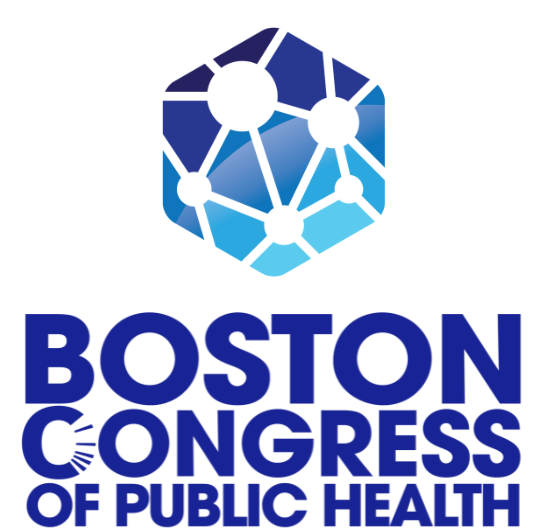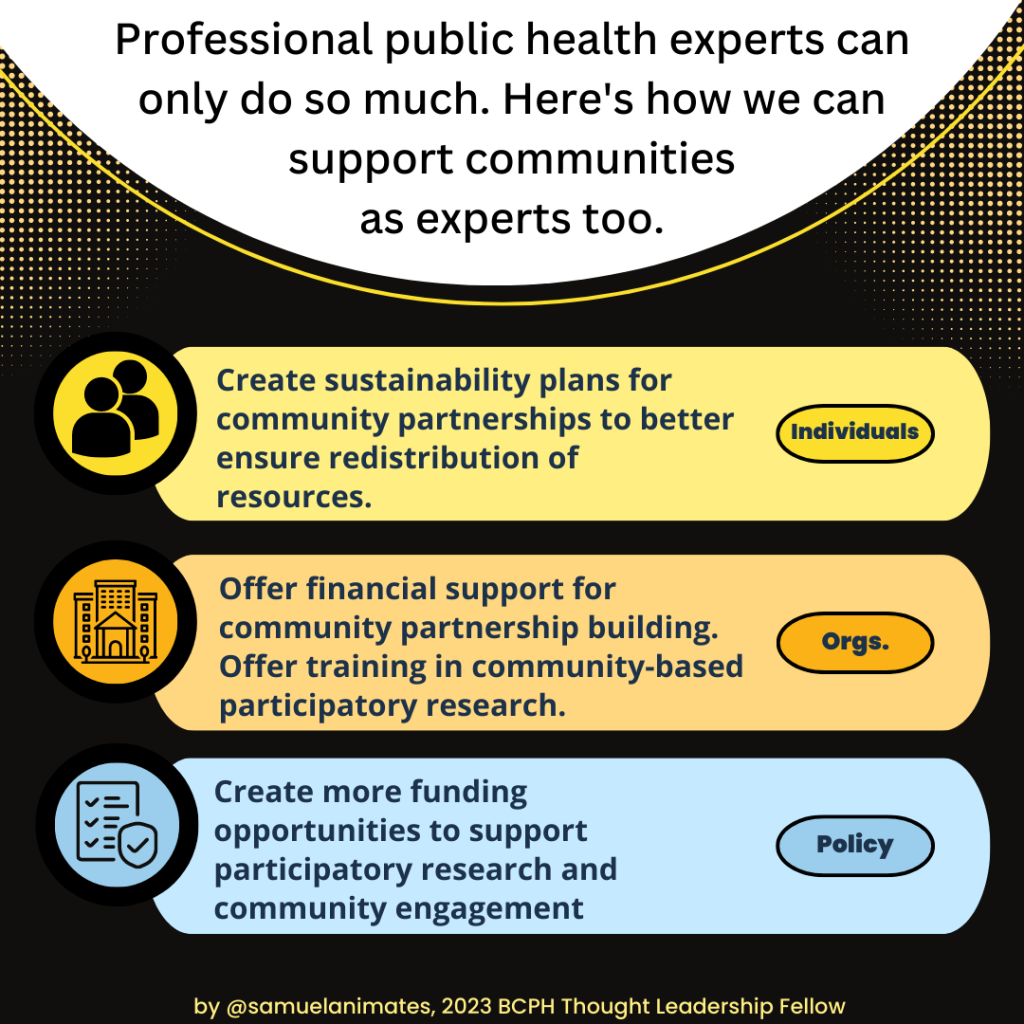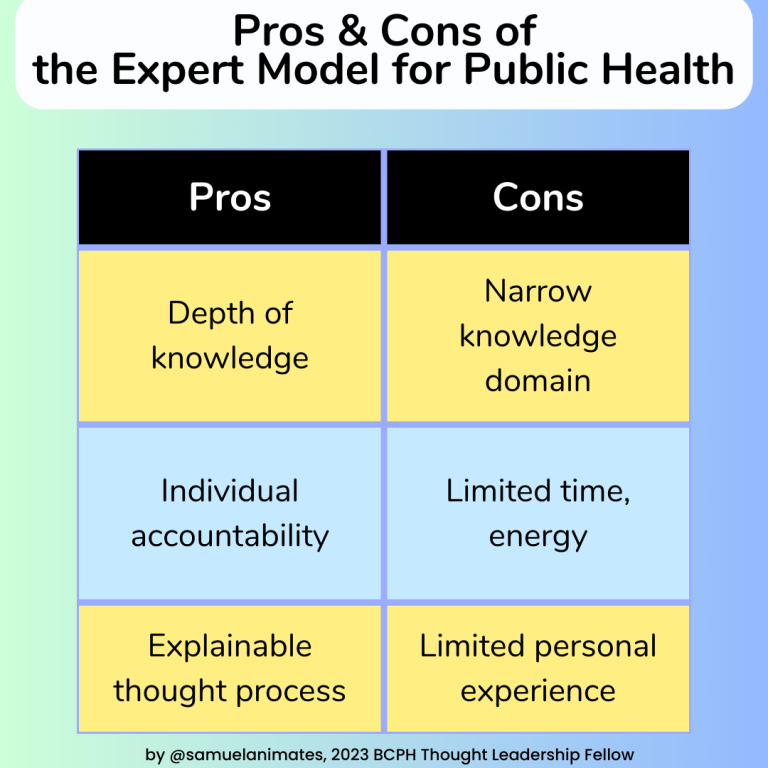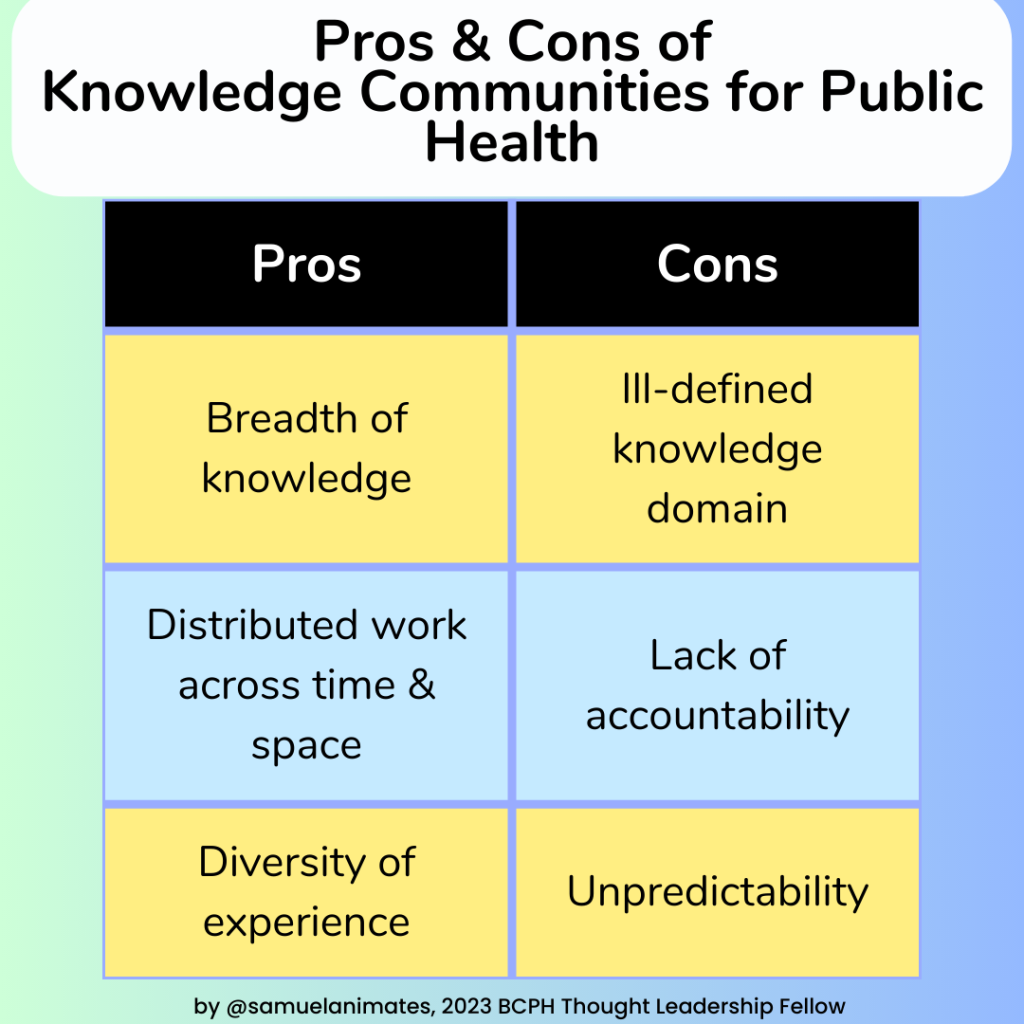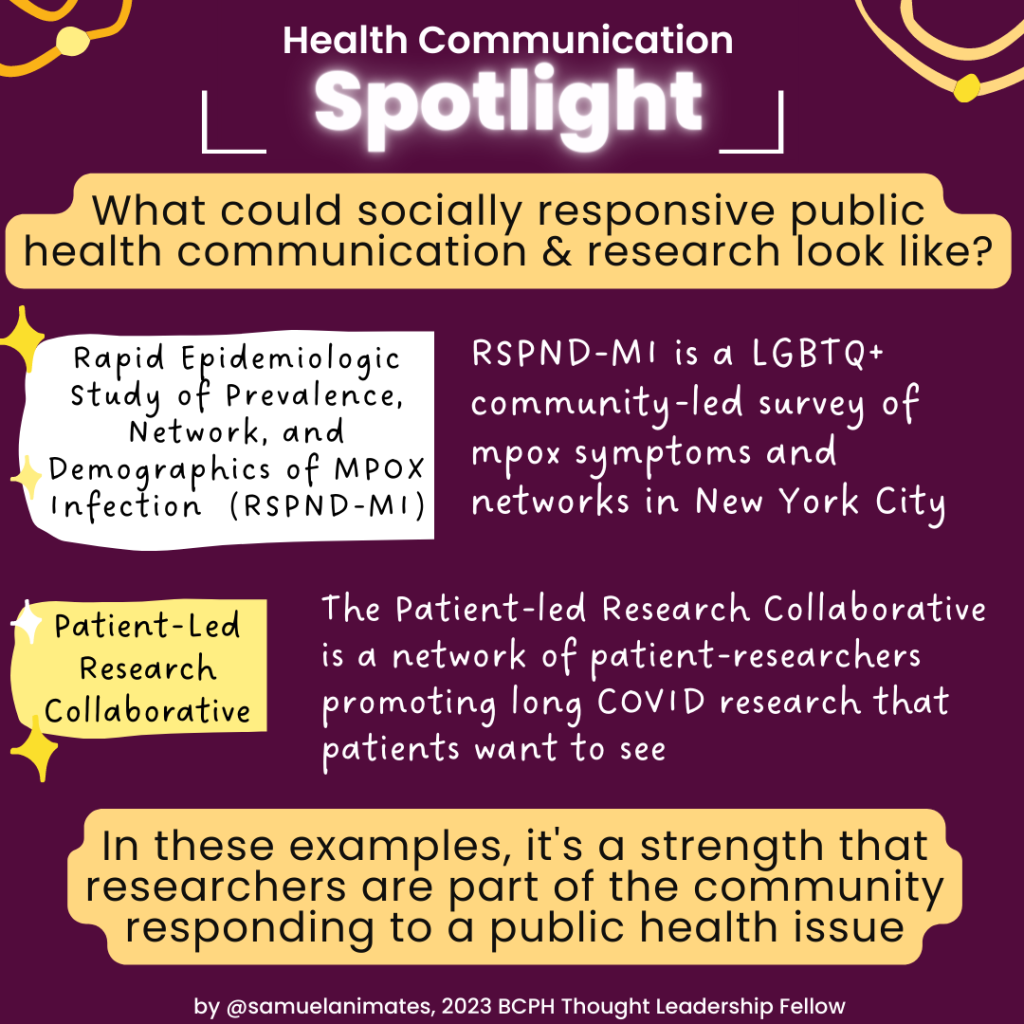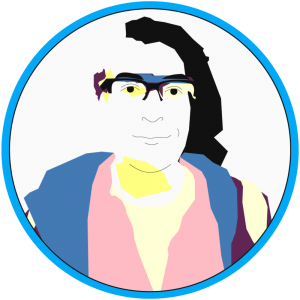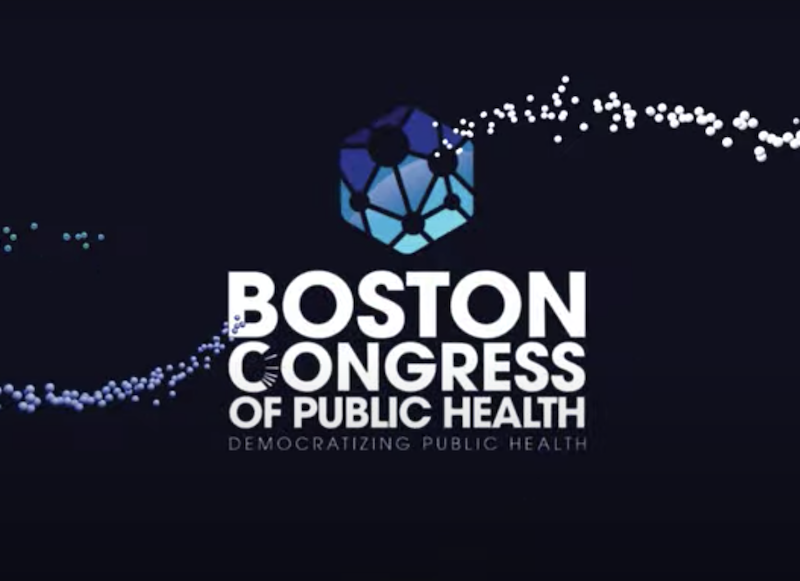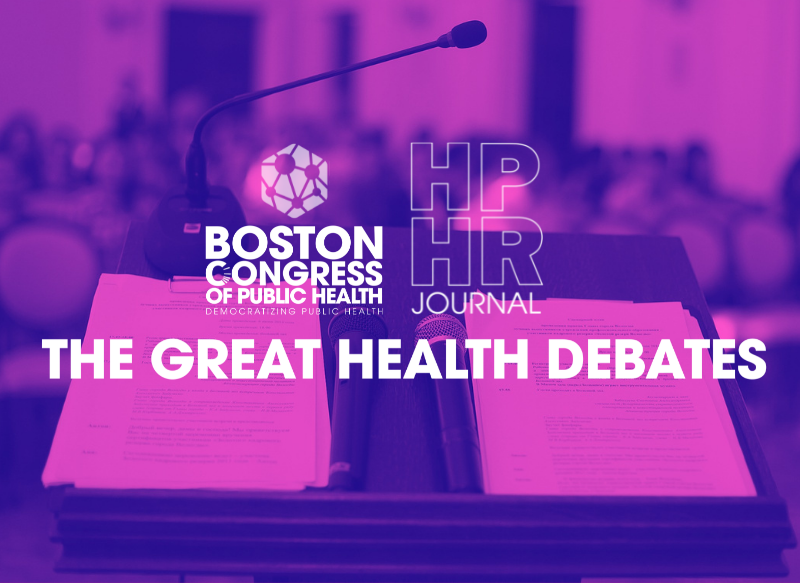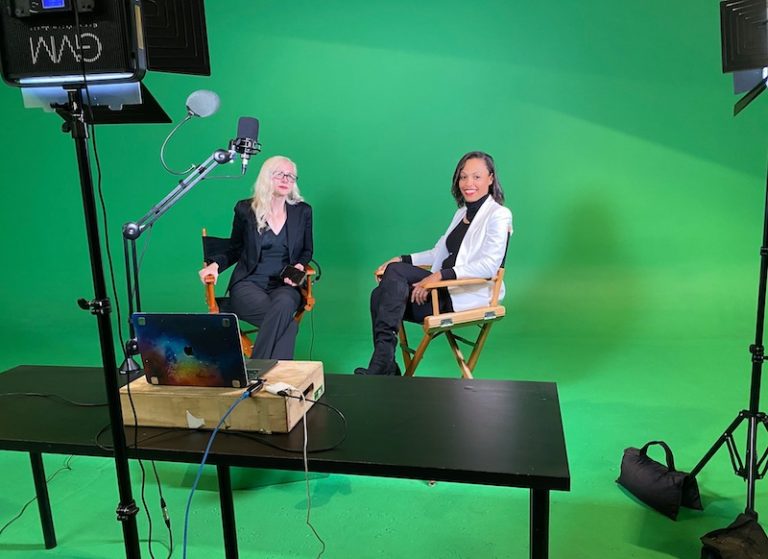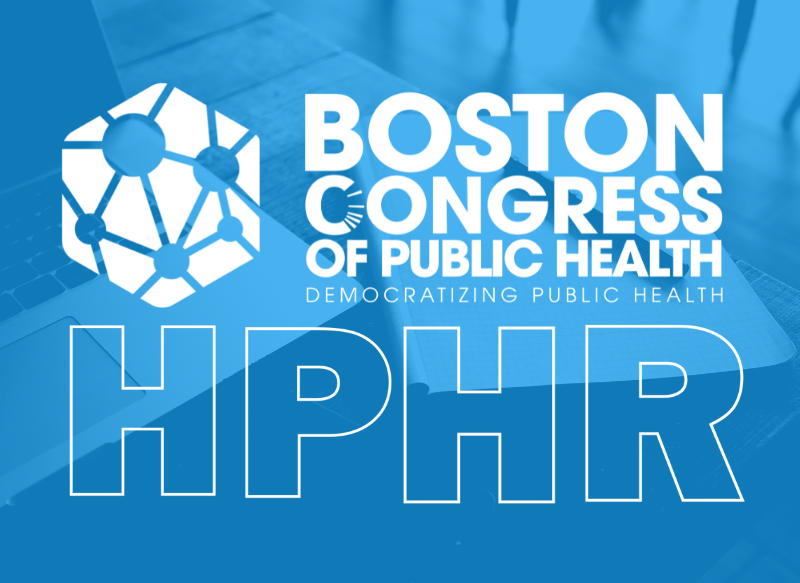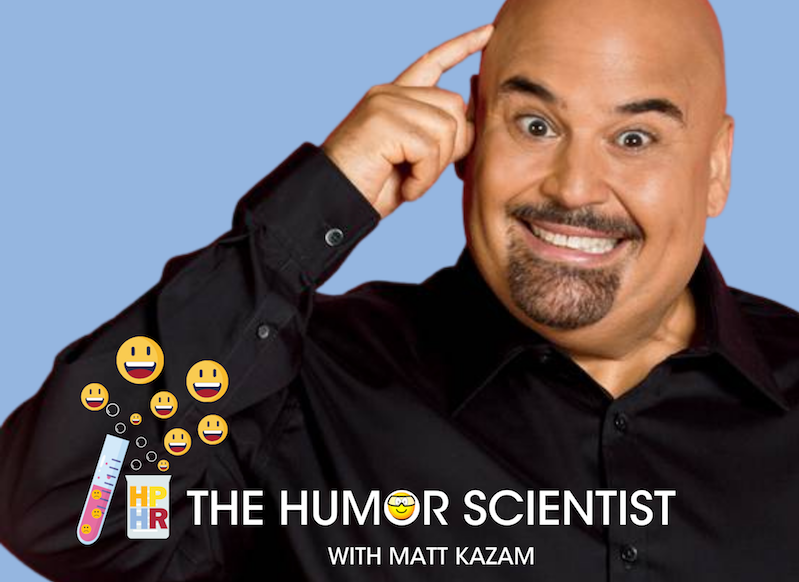Public health communication largely works under an “expert” or “deficit” model. The underlying logic is that public health experts have knowledge that other people lack. And they have the responsibility to get this knowledge out through pamphlets, press conferences, etc.
Knowledge communities are an example of participatory media cultures. In the social media age, more and more people are used to talking with and talking back to friends, brands, celebrities, and politicians alike. Most people are not involved in online fandoms, but these types of interactions are increasingly common in the social media era.
